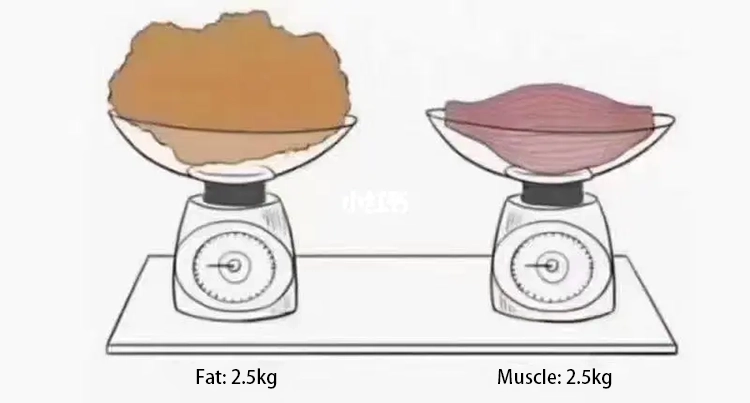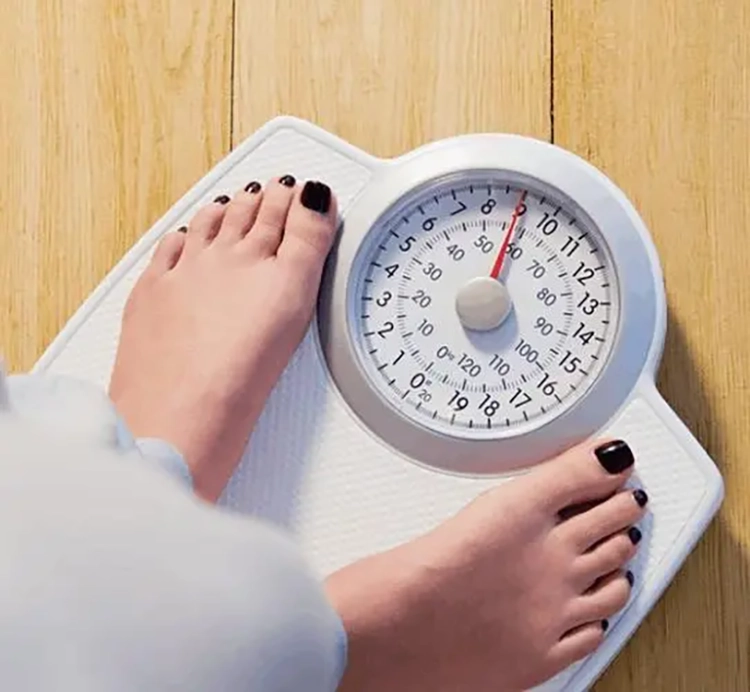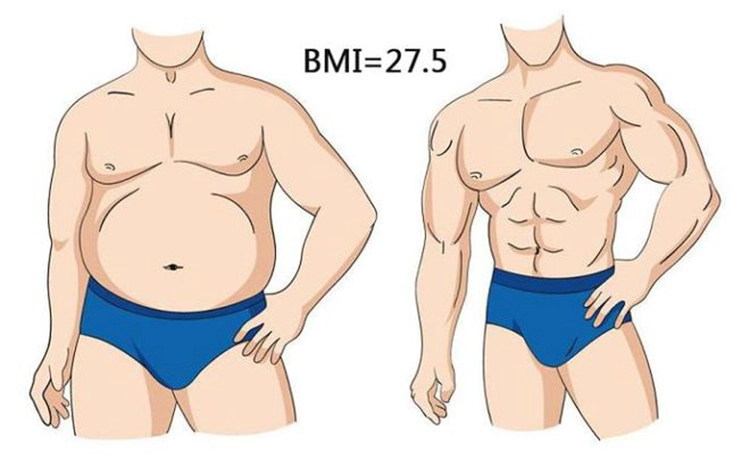Do you want to know how many pounds you can lose in a month?
It’s a question that everyone who’s trying to lose weight, gain muscle, or achieve a goal wants to know. How many pounds can they lose, or how quickly can they get there?
Let’s get to the bottom of that question……

The difference between “weight” and “fat”
In order to determine exactly how many pounds you can lose in a month, we first need to understand the important difference between weight loss and fat loss.
Losing “fat” is easily understood as reducing the amount of fat in your body.
But weight loss is a different story. It encompasses a lot of different things. For example:
Fat. Muscle. Moisture. Glycogen. Poop. Stomach contents. Blood. Hair. Bones. Etc.
You can lose “weight” very quickly

Weight loss can happen fairly quickly.
For example… You can cut off a leg and lose a lot of “weight” in an instant. Of course this is just a joke, this is just an example.

More practically, you can lose a lot of water quickly.
This is a fact that many stupid “weight loss” plans rely on. They promise quick weight loss, then make you do something that causes significant (and temporary) water loss while claiming it’s fat.
But before long, you’ll quickly regain that water and end up right back where you started.
That’s why prizefighters who have fights sit in the steam room before a fight. This way they can quickly lose a lot of water weight (but not fat).

In addition to losing water weight, you can also lose weight by losing muscle… This is something most people try to avoid at all costs.
Also, you can get food poisoning and have a bowel movement and lose a few pounds in a matter of minutes.
The point I’m trying to make is that if you want to know how many pounds you can lose in a month and don’t care what the source of that weight loss is, the answer to the “How many pounds can you lose in a month” question will be: A lot.
But we’re asking the wrong question.
I’ll assume you don’t want to lose temporary water weight, you don’t want to lose any lean muscle mass, you don’t have “explosive diarrhea” on your to-do list, and you’re not willing to cut off a leg (smart move).
In this case, the only thing we’re really talking about when we broach the subject is fat.
So, having made this important distinction, we can now slightly change the wording of the question.
Instead of asking how much weight you can lose in a month, we can change it to…

How much fat can you lose in a month?
Now, that’s a question we can answer more accurately. We just need two simple facts and some simple math.

Fact 1
A caloric deficit is the only cause and requirement for fat loss.
This means that in order to lose any amount of fat, you need to consume fewer calories, burn more calories, or both to maintain a consistent deficit.

Fact 2
There are about 3,500 calories in 1 pound of body fat.
This means that every time you create a deficit of 3,500 calories, you can expect to lose about 1 pound of body fat.
Note, however, that you shouldn’t expect to lose exactly 1 pound of “weight” in this situation, as those other factors I listed earlier (hydration, bowel movements, stomach contents, etc.) will affect the scale number to some extent (for example, you may have lost 1 pound of fat but gained 0.5 pounds of water, so the scale will only show a 0.5 pound loss).
Also, factors such as NEAT (caloric expenditure from non-exercise activity) and TEF (thermal effect of food) are constantly changing in ways that affect the actual number of calories burned each day.
That being said, estimating how much weight you lose for every 3,500 calorie deficit you create is still the best way we have to estimate how much weight you can lose over a given period of time.

The math: How many lbs can you lose in a month?
With the above two facts in mind, all that’s left to do is calculate how much of a deficit you’ll be in in a month.
Here are some examples.

Example 1
Suppose someone needs to eat 2,500 calories per day to maintain their current weight.
Now suppose he starts with 2,000 calories a day.
2500-2000 = a deficit of 500 calories per day.
In this case, the person can expect to lose about 1 pound per week. Because a deficit of 500 calories a day X 7 days a week = 3,500 calories.
Fairly simple, right?
Now, let’s expand this example to a month instead of a week.
Since a month is about 4 weeks long, this example can expect to lose about 4 pounds a month.

Example 2
Now let’s imagine creating an even larger deficit.
In addition to eating 500 fewer calories a day, he burns an extra 250 calories a day by doing exercises like cardio.
Now, their total daily deficit is 750 calories instead of 500.
How much weight can he now expect to lose in a month? About 6 pounds.

Example 3
What if you create a deficit of 1,000 calories per day?
He could lose about 8 pounds a month.
Your deficit will determine how fast you lose weight.
I think you can probably see by now that the rate at which you lose fat/weight is determined by the size of your deficit.
This means…
The smaller the deficit, the less weight you can expect to lose in a month.
The larger the deficit, the more weight you can expect to lose in a month.
The imperfect but still accurate “3,500 calorie deficit = 1 pound loss” equation will help you narrow it down to a fairly accurate estimate of how much weight you can expect to lose over a certain amount of time.

This brings up an important question…
How fast should you try to lose weight?
Once you understand the simple math behind weight loss and how adjusting your caloric intake/expenditure can make progress faster or slower, you may start to wonder…
“I will create a huge calorie deficit so I can lose weight as soon as possible!!”
I see where you’re coming from.
But the problem with this way of thinking is that successful weight loss is much more than just quick weight loss.
So while it may be tempting to go on an excessively low-calorie diet (for example, eating only 1,200 calories a day) and/or start burning calories a lot, that’s not really what you should be doing.

The ideal rate of weight loss
Lose 0.3-1% of your total weight each week. In most cases, this equates to a loss of 0.5-2 pounds per week.
This is the sweet spot of fat loss results achieved from healthy, sustainable and still actually losing weight relatively quickly, while minimizing or preventing many of the problems that arise during weight loss.
How much weight is lost per month?
To determine how much weight you should ideally lose in a month, multiply your weekly rate by 4 (since a month is about 4 weeks long). In most cases, you can expect to lose 2-8 pounds per month.

